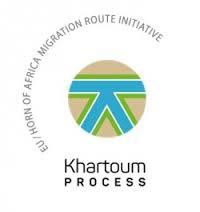
https://www.issafrica.org/research/policy-brief/the-khartoum-process-a-s...
In the 2012-16 ‘migration crisis’, citizens from the Horn of Africa have been arriving irregularly in Europe in unprecedented numbers, whilst featuring disproportionately amongst the fatalities. This has prompted the launch of the Khartoum Process, a partnership between the 28 member states of the European Union (EU) and East and North African states, to respond to human smuggling and trafficking. This brief critically and unfavourably evaluates this framework. The Khartoum Process is not only unlikely to achieve the desired outcomes, but, more importantly, it is likely to pose a risk to the better governance and development of the Horn of Africa.
Here the key reccomandations:
1) The eu should be strongly encouraged to consider using its influence and assistancein Africa, and specifically the Horn, to advocate for better human-rights-oriented and open governance among the states partners to the Khartoum Process.
2 The Khartoum Process should be used to promote an integrated, migrant-centric understanding of migration management
3) Responses and policies towards human smuggling need to be disentwined from those relating to humantrafficking. There is a need to build awareness of this distinction among states, state actors, civil society and international protection officers
4) Promote a more proactive understanding of the smuggling industry as a vector in migration and a resilience strategy for vulnerable populations
Find here the doc:
https://issafrica.s3.amazonaws.com/site/uploads/policybrief93.pdf
About the author:
Tuesday Reitano is deputy director of the Global Initiative against Transnational Organized Crime and a senior research consultant for the ISS. She has experience as a policy specialist for the UN. She serves as an independent expert to the EU on human smuggling, is lead author of a 2016 OECD study on the smuggling of migrants from Africa to Europe, and co-author of Migrant, refugee, smuggler, saviour, a book that documents the human-smuggling industry behind Europe’s migration crisis.










Add new comment